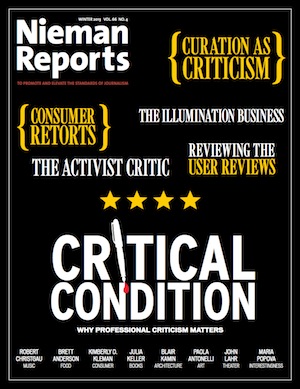Here, Maria Balinska, founder of Latitude News and former Nieman Fellow, writes about her aim to make the local global and the global local.
 My journalism manifesto comes down to three words: local global mashup.
My journalism manifesto comes down to three words: local global mashup.
Here’s the back story. I’ve spent my entire career — 18 years of it at the BBC — in international journalism, reporting and editing stories “abroad” for audiences “back home.” But what’s become increasingly clear is that this kind of distinction is artificial. We may all be aware of the fact that we live in a globalized world but it’s not very often that you see journalism that explicitly connects the dots between what’s happening in one country and another. Why is a Brazilian company employing former NASA engineers to build corporate jets in Florida? How did the governor of Nebraska get over 50,000 followers on Weibo, China’s equivalent of Twitter? And what are people in other countries doing about bullying, an urgent problem on the agenda of schools across the U.S.?
To put it colloquially, it’s time to “mashup” (the wonderfully graphic term I’ve borrowed from music and web development) the local and the global. As we’ve found at my journalism startup Latitude News, there’s a gold mine of stories crying out to be told, stories that our readers and listeners say are “fresh”, “powerful” and — here’s the kicker — “relatable to.” Once you relate to something, chances are you are going to be interested and engaged.